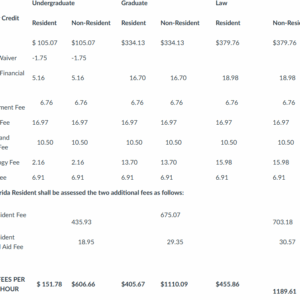Lifestyle | December 4th, 2023
On the Road Again: Holiday Driving Safety Essentials
By: Tianna Fannell

With the winter break swiftly approaching, college students eagerly anticipate the journey home after the rigors of exams and a stressful semester. Ensuring a safe return is key, prompting the creation of a comprehensive guide tailored explicitly for college students and their families.
This guide offers practical advice, crucial statistics, and strategies to guarantee a secure and enjoyable trip back.
Vehicle Readiness
Ensuring our vehicles are road-ready is paramount before hitting the road.
Checking tires, brakes, lights, and fluids is a fundamental step. The National Highway Traffic Safety Administration (NHTSA) reports that nearly 10% of accidents stem from tire-related issues, emphasizing the importance of thorough vehicle checks.
Staying Alert and Rested
Driver alertness is paramount. Regularly switching drivers or taking breaks is highly recommended.
CDC studies underscore the heightened accident risks associated with driving while fatigued, especially on Florida’s extensive roadways, where drowsy driving contributes to approximately 72,000 crashes annually in the United States.
Practicing Defensive Driving
Sharing your travel plans with a trusted individual or loved ones ensures that someone is aware of your intended route and schedule, which is important while driving.
This is invaluable in case of unforeseen circumstances, allowing for timely assistance if needed. Additionally, it aids emergency responders in locating and assisting travelers in distress, a crucial factor during emergencies or unexpected situations.
Adhering to Traffic Regulations
Adherence to traffic laws, including seatbelt usage and speed limits, is critical.
According to the National Highway Traffic Safety Administration (NHTSA), statistics indicate that seatbelt use substantially reduces severe injury risks, especially on Florida’s highways, where speeding accounted for 29% of traffic fatalities in 2021.
Emergency Preparedness
Equipping vehicles with emergency kits containing essential supplies like first aid kits, flashlights, tools, and emergency contact information is a prudent step for travelers. This preparedness significantly mitigates the impact of circumstances that may occur during travel.
A well-stocked first aid kit provides immediate aid for minor injuries or medical concerns during the journey. This resource becomes indispensable in remote areas or during instances when immediate medical assistance might not be readily available.
Additionally, a functional flashlight ensures visibility in low-light conditions or emergencies occurring during nighttime travel.
Basic tools, such as tire irons, jumper cables, or a multipurpose toolset, enable travelers to address minor mechanical issues unexpectedly. This preparedness would help individuals handle simple vehicle repairs swiftly, reducing downtime and potential risks on the road.
Staying Informed and Connected
During any travel, especially in Florida, sharing your itinerary and keeping updated on prevailing weather and traffic conditions are imperative.
The Florida Division of Emergency Management highlights the critical nature of informed decision-making, particularly during significant seasons like hurricane season or unexpected traffic events.
Regarding weather conditions, Florida’s diverse landscapes are prone to quick weather changes. While snowfall is uncommon, fluctuations in temperature, sporadic rainfall, or even foggy conditions can affect road visibility and safety. Staying updated through reliable weather forecasts enables travelers to adjust their plans, possibly delaying or rescheduling travel during adverse weather conditions for a safer journey.
Traffic conditions in Florida can be unpredictable, especially during peak travel periods or major events.
Keeping abreast of traffic updates helps travelers plan their routes more effectively, avoiding congested areas or potential delays. This proactive approach not only saves time but also ensures a smoother and more efficient travel experience.
The act of sharing travel plans and staying informed about Florida’s ever-changing weather and traffic situations is more than just a recommendation – it’s a crucial safety measure. It allows travelers to anticipate, adapt, and make informed decisions, ensuring a safer and more secure journey back home.
Understanding Risks
Acknowledging potential risks stemming from neglecting safety measures is crucial. Comprehending these risks bolsters commitment to safety protocols, ensuring a safer travel experience for everyone navigating Florida’s roadways.
Before embarking on the journey, especially after demanding exams and the approaching winter break, prioritize safety. Ensure vehicle readiness, thoughtful route planning, and staying alert throughout the trip are top priorities.
Driving might not conventionally be considered meditation; some experts suggest that its repetitive and focused nature can induce a meditative-like state.
According to the American Psychological Association (APA), activities requiring focus and repetition, like driving, can foster relaxation and focus, resembling a meditative state. While not a substitute for formal meditation, this suggests that driving might offer a calming effect for some individuals.
Consider creating a YouTube playlist before the drive to listen to. Driving can be a meditative experience, especially during long hours. Listening to content aligned with your goals can enhance focus and tranquility, contributing to a more relaxed journey.





